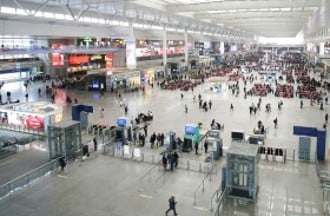
21 June 2020 – The International Air Transport Association (IATA) warned that delaying the restart of air connectivity through continued quarantine restrictions puts 95,300 jobs at risk in Israel, and called for financial assistance for the aviation industry.
The shutdown of air travel caused by the COVID-19 crisis means that passenger numbers to/from Israel will decline by 13 million (55%) this year and airline revenues will fall by US$3.2 billion. The wider impact on Israel’s economy is estimated to be around US$8.3 billion.
With such a heavy impact on airline finances, the economy and employment, it is essential that the government consider a package of measures for supporting airlines in Israel. We have seen governments across the world provide various support, including:
- Direct financial assistance. Examples include substantial aid given by governments in France, Germany, the US and Singapore. While all assistance is helpful, governments should avoid loans which ultimately increase industry debt levels. Other options including subsidizing domestic operations and waiving airport and air traffic control charges.
- Extensions to wage subsidies and corporate taxation relief measures. The wage subsidy schemes have provided some US$35 billion in relief to airlines. Relief for corporate and indirect taxes such as VAT, passenger taxes or fuel taxes would support market stimulus.
- Avoiding increases in charges and fees. Steep increases in airport and air navigation charges must be avoided during the restart period as this will severely impact airline financials and market recovery. Similarly, governments should cover the costs of new health measures imposed as a result of COVID-19.
While financial aid is important to the aviation industry, for the wider economy it is vital that air connectivity can restart. In total, aviation supports 185,000 jobs and 5% of Israel’s GDP. The continued shutdown of the industry puts about half this total contribution at risk. Therefore, it is essential the Israeli government sets out a plan for eliminating the quarantine measures and re-integrating the nation into global travel and trade. There are established best practices laid out by the International Civil Aviation Organization (ICAO) for restarting aviation which strike the right balance between safeguarding public health while permitting viable air services. The measures, including more thorough and frequent cleaning, and the wearing of face masks, further reduce the already low risk of transmission on board airplanes. Other measures, such as airport screening where appropriate, discouraging symptomatic passengers from traveling, and safe destination protocols, can also reduce the role of aviation as a potential source of international re-infection, and render quarantine unnecessary.
“Airlines in Israel are suffering an unprecedented collapse in revenues, and in order to preserve air connectivity, it’s vital that Israel follow the lead of many other governments and provide financial assistance to the industry. And quarantine measures are a huge impediment to a recovery in air traffic. Our latest passenger survey shows that 83% will not travel if a quarantine is in place. Therefore, if the Israeli government is looking to restart the economy, it needs an alternative risk-based solution.
The answer is a strategy that combines coordinated, internationally-consistent health measures for air travel with effective national plans for managing COVID-19. With this strategy in place, people can be confident that air travel can once again contribute to employment, prosperity and quality of life,” said Rafael Schvartzman, IATA’s Regional Vice President for Europe.
For more information:
Corporate Communications
Tel: +41 22 770 2967
Email: corpcomms@iata.org
Notes for editors:
- IATA (International Air Transport Association) represents some 290 airlines comprising 82% of global air traffic.
- You can follow us at https://twitter.com/iata for announcements, policy positions, and other useful industry information.

